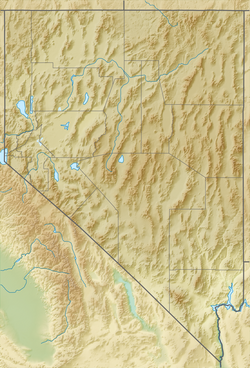| Lost Creek Hills | |
|---|---|
| Highest point | |
| Elevation | 1,979 m (6,493 ft) |
| Geography | |
| Country | United States |
| State | Nevada |
| District | Washoe County |
| Range coordinates | 41°10′22.629″N119°43′6.724″W / 41.17295250°N 119.71853444°W |
| Topo map | USGS Bordwell Spring |
The Lost Creek Hills are a mountain range in Washoe County, Nevada. [1]
